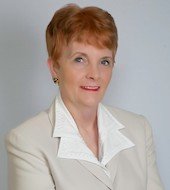The Problem: Low Employee Engagement
An Aerospace Executive, we’ll call her Connie, was concerned because her team was disengaged and apathetic. She wasn’t able to lead them to create her assigned business results. And, her “Employee Engagement” Survey results were abysmal.
The reality was that her team was alienated because she said she wanted to collaborate with them, but when she started a discussion about a department problem, they could tell that she already had a solution in mind and wasn’t truly open to listening to their solutions.
Her intention was to collaborate with them, and she did listen to their ideas. But what she didn’t realize was that, after each idea was presented, she would list the reasons why it wouldn’t work or wasn’t as good as her solution. And, in the end, she never chose their ideas to implement.
(Which, by the way, is the opposite of how a leader should behave while brainstorming with their team).
So, Connie’s team stopped sharing their ideas with her. They knew she wasn’t going to listen anyway, so what was the point. And, her rejection of all their ideas took away their power over their work. Employee engagement was nonexistent. They became apathetic.
The Leadership Development Goal: Be A Truly Collaborative Leader to Increase Employee Engagement
Connie really did want to be a collaborative, inspiring leader. This was just a blind spot for her.
Her Leadership Coach helped her carefully exam her attitudes about problem solving with her team, and her behavior in meetings, and helped her see that she had a “my way or the highway” attitude.
Connie realized that she thought that since she was the boss, her ideas were better. And, since she was the one who was responsible for her team’s results or lack of results, she felt safer implementing her own ideas.
She knew that she ought to know that, in reality, her staff were the ones doing the work, and often their solutions were better or at least equal to hers. But her underlying beliefs were driving her to behave differently.
Underlying Beliefs And Fears Drive Leadership Behaviors
Through further examination in her Executive Coaching, Connie was able to see the source of her beliefs about how boss’ should operate. She had learned, at an early age (from her uncle), that the boss’ ideas were always the best ideas.
And, in addition to this belief, a driver for her behavior was fear of failure and fear of feeling unworthy of her leadership role.
Once she found the source of this belief and the source of her fear, Connie grew as a leader. She was able to identify when her underlying belief or her fears kicked in, and consciously select her staff’s ideas for problem resolution rather than her own. Or, at least work to meld her staff’s ideas with her ideas, so that they felt heard and involved.
Over time, as she chose more of her staff’s ideas, employee engagement increased.
Connie found that implementing a team member’s idea, even if it wasn’t the top solution, created a better business outcome because her team was more energetic and more engaged when she truly collaborated with them, and they felt ownership of the solution. And better business results was her goal.
True Collaboration Is The Key to Employee Engagement And Better Business Results
Her energized, happier team was better able to accomplish their goals, which supported her in reaching the department goals.
In addition, her team began to let her know about problems faster, so that they could be resolved faster. And they suggested more ideas for improvement, unsolicited, which further increased their output, reduced their process time, and decreased their errors.
In addition, Connie’s “Employee Engagement” Survey scores went up, which was a metric she was working to improve.
Leadership Growth Edge: Implement Your Staff’s Solutions, Not Your Own
In the end, Connie learned a valuable leadership strategy, Lead to Energize: By Implementing Your Staff’s Solutions, Not Your Own.
Be the Leader you’ve always wanted to be!




 Donna Schilder
Donna Schilder Donna Schilder
Donna Schilder